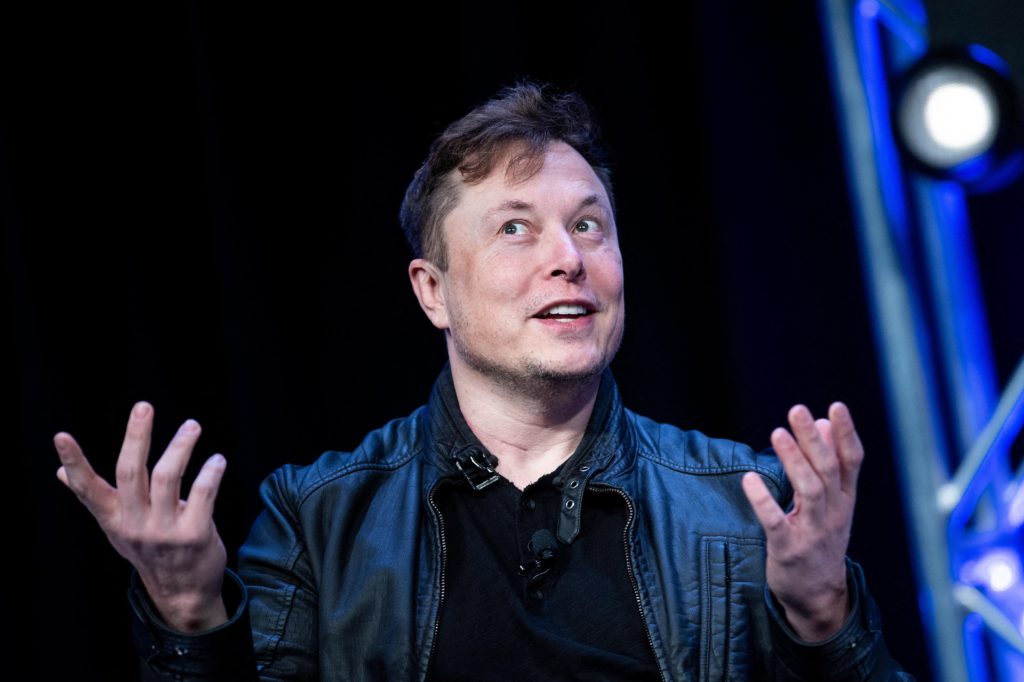Elon Musk: Smasher of elites or self-serving pragmatist?

He has scorned organized labor, mocked political correctness and espoused small government — so the deluge of tweets from conservatives congratulating Elon Musk on his move to buy Twitter was hardly a surprise.
Yet smoking marijuana during interviews, courting the Hollywood set with movie cameos and musing about nuking Mars make him an improbable talisman for political traditionalists.
In polarized America, the 50-year-old triple divorcee’s opposition to Covid-19 restrictions is often taken to demonstrate Republican sympathies, although his occasional disdain for draconian immigration control has suggested the opposite.
The world’s richest man has berated President Joe Biden for proposing a tax credit for electric cars produced by unionized workers. He has also gone much further, calling for an end to all US federal subsidies.
Yet he has aggressively pursued government support himself, taking billions in handouts for his own companies.
International investor James Hickman, founder of the libertarian-leaning Sovereign Man newsletter series, sees Musk as a check on the “tyranny of the minority” — a supposed cabal of elites in tech, media and academia who make decisions for the rest of us and yet “consistently get it wrong.”
“What makes someone a true libertarian is an outright rejection of labels and being completely independent in one’s thinking,” Hickman told AFP.
“Musk clearly qualifies in this regard across both politically and professionally.”
Other analysts have suggested that, as inconsistent as his political philosophy appears, Musk rarely diverges from his own business interests.
Yet even that thesis needs some finessing.
If it’s all about money, why has the Tesla CEO — with his extensive green business interests — called for increases fossil fuel production?
His political donations don’t particularly cleave to one party or point of view either.
A self-styled “moderate” independent — although he has unironically described himself as a “socialist” too — Musk ostentatiously moved to deeply conservative Texas from ultra-liberal California in 2020.
He has given donations to the governors of both states, despite criticizing Texas anti-abortion laws and a “complacent” business environment in California.
‘Senator Karen’ and Stalin
Other donations have gone to Democratic grandees Hillary Clinton and Barack Obama, right-wing House Minority Leader Kevin McCarthy and the Republican Party itself.
Like a recent former president, he is not averse to lashing out on social media at Washington establishment figures, from one-time presidential nominee Elizabeth Warren (“Senator Karen”) to Biden himself (“Sleepy Joe” — a co-opted Trumpism).
And then there’s the issue of free speech, which he has called “the bedrock of a functioning democracy.”
Musk has complained that Twitter is too censorious in its regulation of speech, simultaneously illustrating and undermining his point in a tweet depicting the company’s CEO Parag Agrawal as brutal Soviet dictator Joseph Stalin.
Critics say his passion for unfettered conversation has often appeared less profound when his own interests have been at stake.
Some media outlets have raised questions over Musk’s reaction to journalists writing stories critical of Tesla.
Accused of unleashing his army of supporters on individual reporters, he once mulled creating a website for the profession as a whole called Pravda — presumably a tribute to the Soviet propaganda outlet.
“Going to create a site where the public can rate the core truth of any article & track the credibility score over time of each journalist, editor & publication,” he tweeted in 2018. Nothing came of it.
Tax breaks
Former Hillary Clinton campaign staffer Judd Legum, who produces the “Popular Information” politics newsletter, pointed to a tweet — also 2018 — in which Musk appeared to threaten to rescind employee stock options at Tesla if workers decided to join a union.









